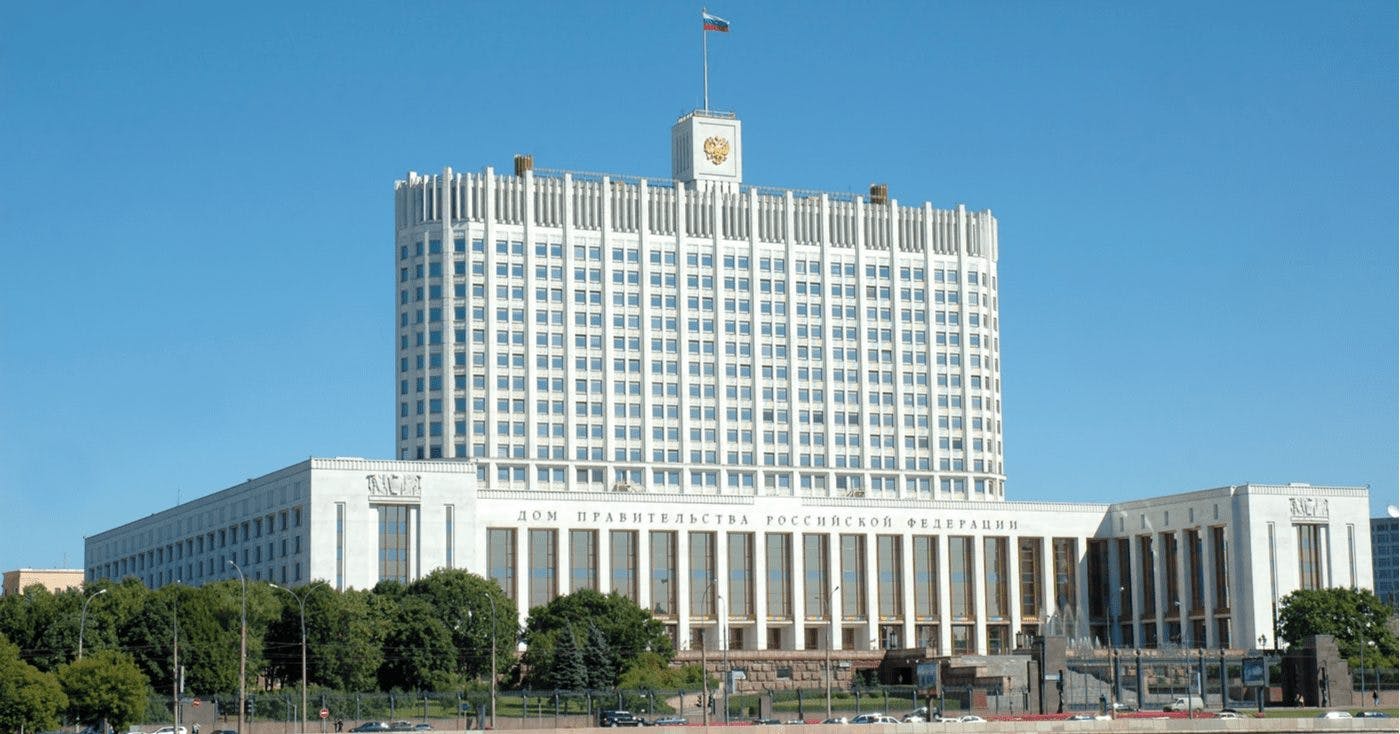Russia Moves to Recognize Crypto as a Form of Currency
Russia’s draft legislation will reportedly be drawn up by no later than Feb. 18 and is expected to regulate crypto as a form of currency.

Russian Whitehouse in Moscow. Source: Shutterstock
key takeaways
- Regulators hope to “bring the digital currency industry out of the shadows”
- The establishment of rules for crypto circulation “would minimize the threat to Russia’s financial system”
The Russian government and the country’s central bank have reached an agreement to draft legislation or amend existing laws recognizing crypto as a form of currency, according to a statement Tuesday.
The agreement is a significant reversal after the Bank of Russia last month proposed banning miners and several other crypto operations over concerns that they could endanger the country’s financial system.
News outlet Kommersant first reported the announcement on Tuesday. It is understood cryptos are to be classified as an “analogue of currencies” and not as financial digital assets. Legislation will reportedly be drawn up no later than Feb. 18.
Russia’s regulation will seek to integrate a mechanism for the circulation of digital currencies into the country’s financial system while ensuring control over credit institutions’ cash flows, a rough translation of an accompanying draft document reads.
“The establishment of rules for the circulation of cryptocurrencies and control measures will minimize the threat to the stability of the financial system and reduce the use of cryptocurrencies for illegal purposes since a complete ban on the segment of operations related to their circulation is impossible.”
Crypto’s use as currency will only be possible following proper identity checks via the country’s banking system or licensed intermediaries, while operations exceeding 600,000 rubles ($8,016) must be declared, according to the document.
Transacting outside those proposed legal parameters will be considered a criminal offense, and fines are expected to be introduced for the illegal acceptance of cryptos as a means of payment.
Officials also said the regulation would ensure the protection of citizens’ rights under a licensing regime aimed at cryptocurrency providers. Providers will need to have “financial airbags” in terms of liquidity and adequate capital.
“The complete absence of regulation of this industry, as well as the establishment of a ban, will lead to an increase in the share of the shadow economy, an increase in fraud cases and destabilization of the industry as a whole,” the document reads.
There are additional plans to introduce an “obligation” for market participants to educate Russia’s citizens regarding the risks associated with digital assets.
Several Russian regulators and lawmakers including the Ministry of Finance, the Federal Security Service, the Ministry of Internal Affairs, the Federal Tax Service and others were involved in the decision-making process.
“The implementation of the concept will ensure the creation of the necessary regulatory framework, will bring the digital currency industry out of the shadows and create the possibility of legal business activities,” the statement reads.
Get the news in your inbox. Explore Blockworks newsletters:
- The Breakdown: Decoding crypto and the markets. Daily.
- Empire: Crypto news and analysis to start your day.
- Forward Guidance: The intersection of crypto, macro and policy.
- 0xResearch: Alpha directly in your inbox.
- Lightspeed: All things Solana.
- The Drop: Apps, games, memes and more.
- Supply Shock: Bitcoin, bitcoin, bitcoin.





